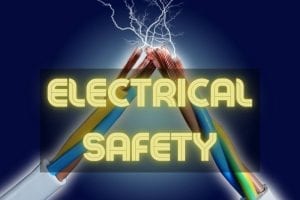There are a number of benefits to becoming an electrician. These include a flexible schedule, a secure income, and the opportunity to earn a good level of income. An electrician can start their own business, which can be more lucrative than working for someone else. However, there is a lot of responsibility involved. Those who start a successful electrical business can easily earn a very decent income as a small business owner.
Electricians Job Duties
Generally, electricians are responsible for the installation of electrical systems, including the wiring of homes and businesses. They also perform routine maintenance on these systems and can repair them if they malfunction. Electricians diagnose circuit failures and replace damaged components. Troubleshooting is a key part of their job, and they must be able to identify the underlying cause of the problem.
An electrician's job description can be quite varied. They may work on construction projects, installing electrical systems, and wiring homes, businesses, and factories. Most buildings are built with electrical systems that will power appliances and machinery inside. Installing an electrical system during construction makes it easier to work with. Once the construction process is complete, electricians will repair the electrical systems and replace broken parts. Other electrician job duties include testing installations, providing cost estimates, and providing emergency services.
Residential Electricians and Smart Homes
A residential electrician will specialize in home systems and often visit several homes within a day, travelling between them throughout the day. They may specialize in new home technology like smart home systems and electrical wiring to support Electrical Vehicles (EV) home charging systems and home energy saving systems.
An electrician might install outdoor lighting or power systems and burglar and alarm systems in homes, businesses, and factories. They may also perform maintenance on existing systems. An electrician may need to read blueprints or interpret electrical diagrams to identify where wires and component locations are. Or they might be installing wires and components with tools like screwdrivers. They will also use technical equipment such as ammeters to ensure connections are safe and that components work safely.
A typical working week for electricians is between 35-40 hours. There is always the possibility of overtime, as many electrical jobs can't be left unfinished. However, the nature of the job means that many electricians are available 24 hours a day for emergency calls.
Working Away from Home
Unlike many employees who have a regular place of work, electricians often work in a remote location for a certain period. This can be from a single day to a few months before moving on to another job. Sometimes, these job sites can be far from the electricians’ homes.
Maintenance electricians work a 40-hour work week. They are usually available Monday through Friday. Their work can vary depending on their location. Maintenance electricians tend to fix or upgrade existing electrical systems and repair equipment. They could be installing fans or lighting in residential settings. These services, which are increasingly important in energy efficiency, are also becoming more popular. They may perform complex maintenance work in factory settings on specialized equipment such as motor, transformer, and generator repairs in machines, specialised tools, or industrial robots.
While most electricians are trained to work in maintenance or construction, some specialize in both. Many electricians will work in the construction industry, installing wiring systems and performing smoke alarm installations in homes, factories, or businesses. They may also be required to follow architectural drawings.
Training
An electrician is a skilled professional who specializes in the wiring of buildings, transmission lines, stationary machines, and other electrical equipment. In addition to installing new components, electricians also maintain the existing infrastructure. An electrician may be employed in many different settings. They may be hired to work on a project site to perform repairs and maintenance, or they may conduct electrical inspections.
Electrical training is necessary for anyone who wishes to become an electrician. Electrical jobs are dangerous, and electricians must be skilled and knowledgeable about how to avoid accidents. An electrician's duties often involve analyzing blueprints, testing devices, and replacing faulty wiring. They also collaborate with other professionals in the field.
Physical Demands
Electrical work can be physically demanding. Electricians are usually on their feet for long periods, standing, bending, and kneeling. There's also a fair amount of shifting and heavy equipment involved. However, the physical demands of electricians are not nearly as extreme as those of other construction tradespeople.
While no specific laws require electricians to have a physical test, some companies may have unofficial requirements. These requirements are often made to ensure that a prospective employee is physically capable of handling the work.
Earnings Potential
Many factors affect an electrician's earning potential, including location and cost of living. For example, a professional in Alaska will earn approximately $10,000 more than someone in Maine. Also, different areas have different industries that affect salaries. For example, Iowa electricians can expect a good salary working in the agricultural industry. Meanwhile, a professional in Texas can expect to earn a good salary working in the oil industry.
 The salary of a beginner electrician in Richmond, Virginia, is around $44,000 a year, which can increase as they gain experience. After seven years, the average electrician in Richmond, VA, earns about $87,000 a year. However, this salary depends on several other factors, including the number of electricians in the area. When there are few electricians, there is high demand. As a result, the earnings of an electrician are usually higher than the minimum wage. Experienced electricians can command up to $50 an hour.
The salary of a beginner electrician in Richmond, Virginia, is around $44,000 a year, which can increase as they gain experience. After seven years, the average electrician in Richmond, VA, earns about $87,000 a year. However, this salary depends on several other factors, including the number of electricians in the area. When there are few electricians, there is high demand. As a result, the earnings of an electrician are usually higher than the minimum wage. Experienced electricians can command up to $50 an hour.
Career Prospects
If you are interested in becoming an electrician, you should start with training, apprenticeship, or certification. As you gain experience, you can become a journeyman and branch out into speciality areas. Specialization in electrical systems will open doors for you to earn a higher salary and enjoy increased job satisfaction. The demand for electricians is not likely to decline anytime soon.
According to federal government figures, the number of electricians is expected to increase by 4.5 per cent over the next five years. However, this increase is not proportional to the number of job openings. For example, in Victoria, the number of job ads increased the most. Meanwhile, in New South Wales, job advertisements rose the least.
The post What Does an Electrician Do – Is This a Good Career Choice appeared first on https://gqcentral.co.uk


